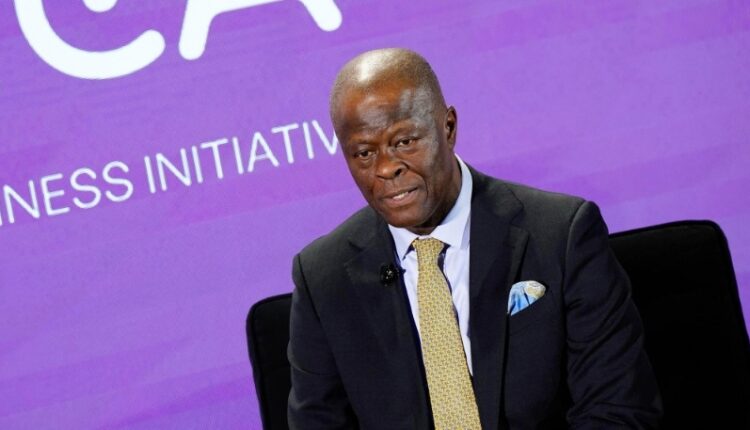2024: Nigeria’s FDI falls by 22.85% in Q2, worst in 9 years
Maureen Aguta
Contrary to Nigeria’s President, Bola Ahmed Tinubu‘s recent claim that the country recorded $30 billion Foreign Direct Investment (FDI) in the last year, data has shown that in the second quarter of 2024, the country recorded its lowest FDI in over nine years.
This report examines the trend of FDI in Nigeria between 2015 and the second quarter of 2024. Recently released data from the National Bureau of Statistics reveals a significant decline in FDI for Q2 2024, totaling $29.83 million.
Nigeria’s capital importation declined by 22.85 per cent in Q2 2024 from $3,376.01 billion in Q1 2024 to N2,604.50 billion, according to the National Bureau of Statistics (NBS).
However, the figure is higher than US$1,030.21 billion recorded in Q2 2023, indicating an increase of 152.81 per cent.
The NBS report revealed that Portfolio Investment ranked top with $1,404.70 billion, accounting for 53.93 per cent, followed by ‘Other Investment’ with $1,169.97 billion, accounting for 44.92 per cent. Foreign Direct Investment recorded the least with $29.83 million (1.15 per cent) of total capital importation in Q2 2024.
The Banking sector recorded the highest inflow with $1,123.95 billion, representing 43.15 per cent of total capital imported in Q2 2024, followed by the Production/Manufacturing sector, valued at $624.71 million (23.99 per cent), and Trading sector with $569.22 million (21.86 per cent).
Capital Importation during the reference period originated largely from the United Kingdom with $1,120.15 billion, showing 43.01 per cent of the total capital imported.
This was followed by the Netherlands with $577.82 million (22.19 per cent) and the Republic of South Africa with $255.98 million (9.83 per cent).
Out of the three states that recorded capital importation during the quarter, Lagos State remained the top destination with US$1,367.84 billion, accounting for 52.52 per cent of the total capital imported.
Abuja (FCT) followed with $1,236.64 billion (47.48 per cent) and Ekiti State with $0.0003 million.
Citibank Nigeria Limited received the highest capital importation into Nigeria in Q2 2024 with $818.46 million (31.43 per cent), followed by Standard Chartered Bank Nigeria Limited with $654.79 million (25.14 per cent) and Rand Merchant Bank Plc with $488.59 (18.76 per cent).
FDIs have been low in the past few quarters following an increase in the CBN Monetary Policy Rate (MPR), which drains up cash from the real sector, where FDI concentrates, to money market instruments which make up the FDIs.
Further analysis shows that the figure posted for the second quarter of the year, is lowest since 2015.
In the fourth quarter of 2022, Nigeria earned FDI of $84.23 million; in the third quarter of 2022, the FDI stood at $81.72 million; in the second quarter of 2022, it stood at $147.16 million, while that of the first quarter of 2022 stood at $154.97 million.
More checks show that in the second quarters of 2023, FDI stood only at $86.03 million while in the first quarter of 2023, FDI stood at $47.06 million.
Data review shows that in the first quarter of 2015, the country’s FDI stood at $394.6 million, the figure recorded in Q2 of 2015 was $211.1 million, Q3 $717.7, million and Q4, $123.1 million.
In 2016, the FDI recorded was Q1 $174.4 million, Q2 $184.2 million, Q3 $340.6 million, Q4. $344.6 million.
The data further shows that in 2017, the FDI for the first quarter stood at $211.3 million that of Q2 was $274.3 million while that of Q3 was 117.6 million.
In 2018, the amount recorded was $246.6 million for the first quarter, $261.3 million for the second quarter, $530.6 million for the third quarter and $156 million for the fourth quarter.
In 2019, FDI for Q1 stood at $247.3 million; Q2, $223.1 million; Q3, $206.5 million and Q4, $257.2 million.
The figure posted in 2020 stood at $214.2 million for the first quarter, $148.5 million for the second quarter, $414.7 million for the third quarter and $251.2 million for the fourth quarter.
For the fourth quarter of 2021, FDI stood at $358 million, Q3 recorded $107.81 million, Q2 recorded $77.9 million and Q1 recorded 2021 $154.7 million.


